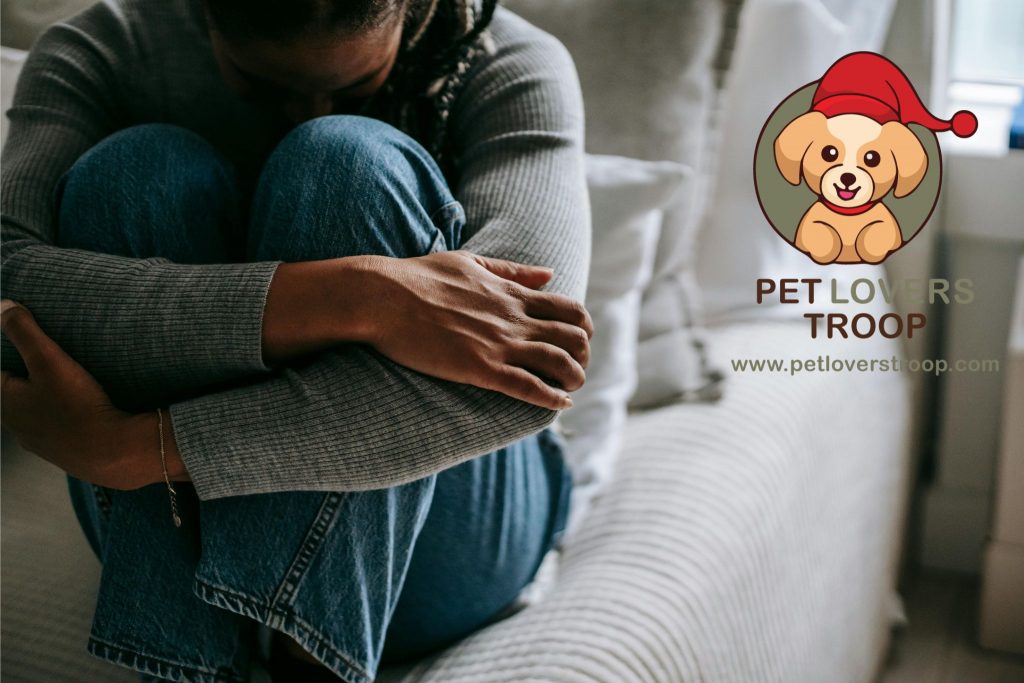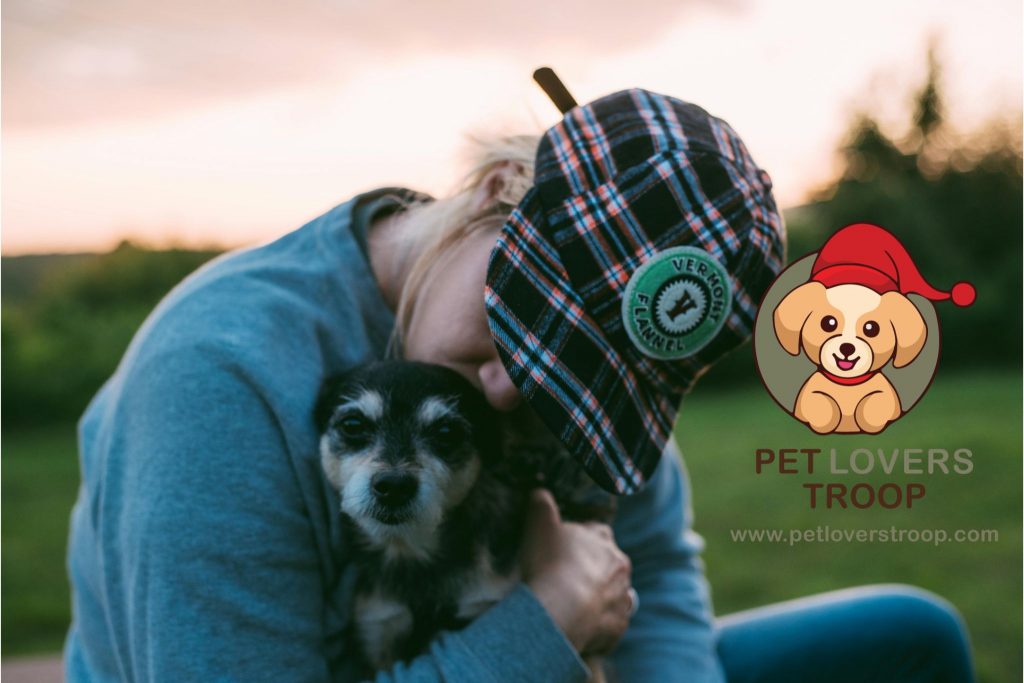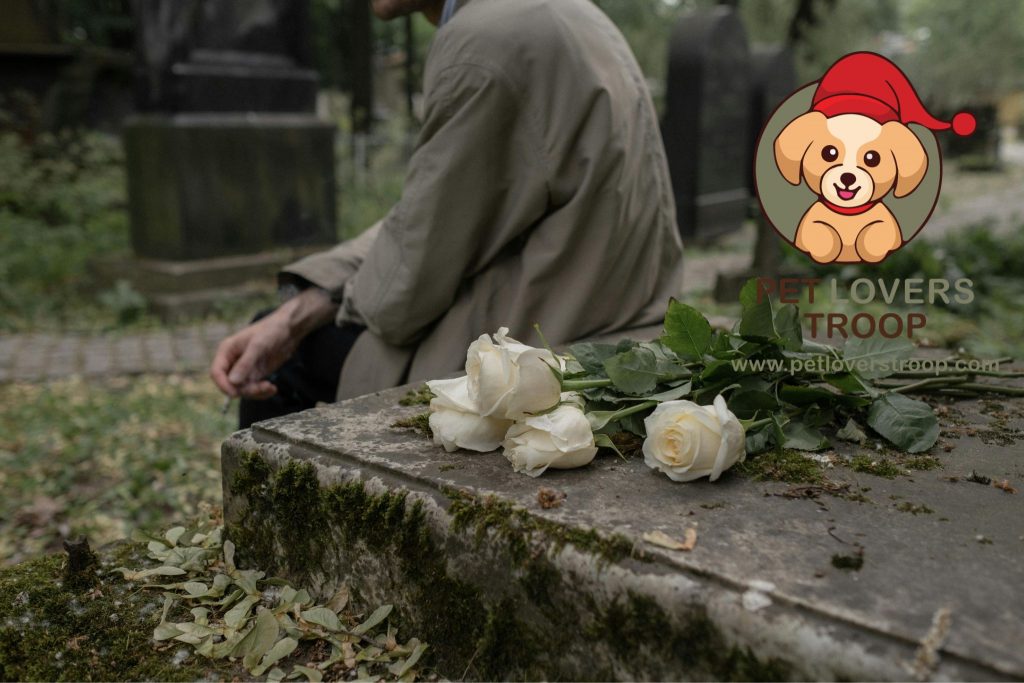Losing a furry family member is an unbearably painful experience. When our beloved pets pass away, it can feel like the air has been sucked from our home. No matter how long we have with our animal companions, saying goodbye is never easy.
The grief that comes with “What to Do When Your Pet Dies” can feel utterly overwhelming. However, there are healthy ways to process emotions and honor our beloved pets that may help ease the sense of loss over time.
This guide seeks to provide a caring perspective and practical advice for navigating the complex mourning journey. In this article, you will find suggestions covering everything from sharing memories to creative memorials, emotional support through others, and knowing when professional help could benefit healing.
What Does Grief and Bereavement Mean?
The typical and natural reaction to losing someone or something is grief. We cannot live without grieving since loss is a universal experience.
Common Grief Reactions
Grief involves many emotional, physical, cognitive, social, and even spiritual responses. In a spiritual sense, grieving frequently leads to doubting one’s beliefs and pondering questions like “Do animals have souls?” “Is my pet okay?” and “Where is my pet now?” “Do our pets miss us when they die?” These are typical responses to the topic of what to do when your pet passes away.
Why does Pet Grief Feel so Intense?
Pet owners invest a great amount of time in their pet’s feeding, taking them for walks, and putting them to the vet when they are old. This increases the feeling of being in charge of the pet’s health and well-being and increases the sadness of being unable to take care of them anymore.
Read it also: The Flea Fiasco: How Long Can These Pesky Pests Survive Without Their Favourite Hosts?

What to di if your Pet Dies at Home?
Coming across a perfect companion in a household and then losing it is one of the most devastating scenarios any pet would go through. The following are some important measures to be owned up as follows:
Call Your Vet
It is recommended to inform your veterinarian when your pet is dead in case it happens at home. They can help you in arranging some things and can also ensure that your pet undergoes proper treatment from them.
Look After Yourself
Losing a pet can make you physically and emotionally disturbed so it is necessary to take care of yourself in this situation. Maintain a good diet, drink water, and ensure to have enough sleep.
Keep your Pet’s Body Cool
Until you consult with your veterinarian, keep the body of the animal cool and isolated at home and separate from other animals. You can cover them gently with a light cloth if needed. Avoid rigor mortis from setting in by not moving or jostling their body.
Coping with Grief after Pet Loss
The best approach is allowing grief to unfold naturally over time by expressing your feelings rather than ignoring or suppressing them. Knowing what to do when your pet dies will help you cope better with the situation.
Allow yourself to Grieve
Grieving is a normal and natural response to losing a loved one. Some people, even if they lose their animals, they grieve in stages, meaning that they undergo different emotions. Grieving is not a quick process; try not to rush yourself during this process.
Talk to Others who Relate
It is often easy to find similar individuals who have lost pets, so there is someone who can offer sympathy because those who have little to no interaction with pets may not fully grasp it.
Recall the Happy Memories
Honor the memories with your pet by recalling fond moments you spent with your pet. Reflecting on time spent with a loved one, along with looking at pictures can gradually introduce happiness and better handle sadness and loneliness.
Read it also: Ten Common Dog Diseases: How to Recognize Symptoms and Prevent Them

Where do Pets Go when they Die?
Even if no soul can know what happens beyond death, finding consoling viewpoints enables us to continue honoring our relationships even when we have to separate ways.
Returning to Nature’s Cycle
As we can never truly know what happens to any soul animal or human after it departs, there is solace here, too; at the very least, their physical forms return into the cycle of nature that births and sustains all life.
Theirs are bodies of new births, new life sprouting in the midst, connected in a chain, linking back to earth from where everyone is born to where everyone returns to say goodbye someday.
Preserving Bonds in New Ways
Despite our physical separation, honoring their legacy and helping others in their memory can be achieved by paying respect to them through pictures, keepsakes, and donations for furry friends who still need care.
Coping Strategies for Intense Grief
Suppose someone is experiencing deep grief, limited or no capacity to undertake any normal tasks, or constant unwanted thoughts. In that case, it might be better to seek specialist assistance to help someone get better faster. The following methods are likely to help if grieving becomes amplified.
Engage your Mind and Body
Engaging your mind and body in interests, hobbies, exercise, and social activities helps prevent unbearable grief. Being with other people is beneficial in such testing times.
Pet Bereavement Therapist
Finding a therapist who specializes in pet bereavement may offer focused help for individuals who are particularly coping with pet loss. They are aware of the special place companion animals hold in our hearts and the strong bonds that exist between pets and owners. Their knowledge can help you understand your loss from your pet’s point of view.
Spiritual Practices
If you believe in a higher power, practice your religion, or have something that you think will ease an animal lover’s pain, do it to comfort you and your pet.
Read it also: Epileptic Seizures in dogs: Symptoms, associated risks and how to comfort them

Remembering a Beloved Pet Always
Our affection for animal friends frequently leaves a lasting impression on who we are. Even while severe pain may eventually fade, the happy memories we make will continue to support us for years to come.
Managing Anniversaries and Triggers
Even years later, memories and intense emotions might be evoked by milestones such as birthdays, adoption or death anniversaries, and other noteworthy dates involving our pets. Over time, the pain associated with these days might be lessened by finding healthy methods to process and accept your emotions.
Consider Adopting When Ready
As time passes and you are ready to let the next pet into your home, he or she will bring a new form of love that will be healing to you and a positive change from your loss. However, any new animal you introduce into your home should be allowed to make a clean break from the previous pet.
Continue Caring for Others
Social connections and functions further alleviate the sorrow for the provision of service, which is humanity’s pursuit. Dog walking in a shelter, giving to a pet charity, or whatever has succeeded in our special attachment to these animals inspires our prior concern.
Reflect on Life Lessons Learned
Pets impart important life lessons that are hard to learn from other sources, such as appreciating the present moment fully and letting go of worries about the future. We can discover a new purpose to continue even after a loved one passes away.
Seek Counselling for Ongoing Struggles
Pet loss counseling helps in dealing with complex emotions that are usually associated with the loss of pets. Every time you meet with a friendly respondent, you can easily go back to a certain phase in life or present difficult questions in an orderly manner.
Finding the Right Support
All coping mechanisms are not suitable for all types of mourning. One opts for individual or group therapy; while others use Internet connection. Through a directed approach of enquiring from the veterinary personnel about certain materials, time will not be wasted in searching for the most appropriate tool.
While solitude seems safer, partnering with someone reduces the load. If you continue binding yourself silently to the past, then the process of healing will sometimes reach its climax.

Conclusion
Every friend who loses his or her special someone undergoes the process of grieving in one way or another. Likewise, the loss of a dear pet companion is quite difficult; any pet owner will tell you how painful it becomes to accept the fact of what to do for the beloved pet upon expiration.
Understanding what to do when your pet dies can help you navigate through the sorrow and find ways to commemorate the beautiful bond you shared. Recalling your enjoyable times together is one of the numerous ways to feel better. You can talk to those close to you or create something to remember them by.
Even though being apart is hard, think about all the ways they showed you care every day. You can honor them by keeping their lesson to love the fullest each moment like they did. Soon, when you remember them, more smiles will come than tears.
